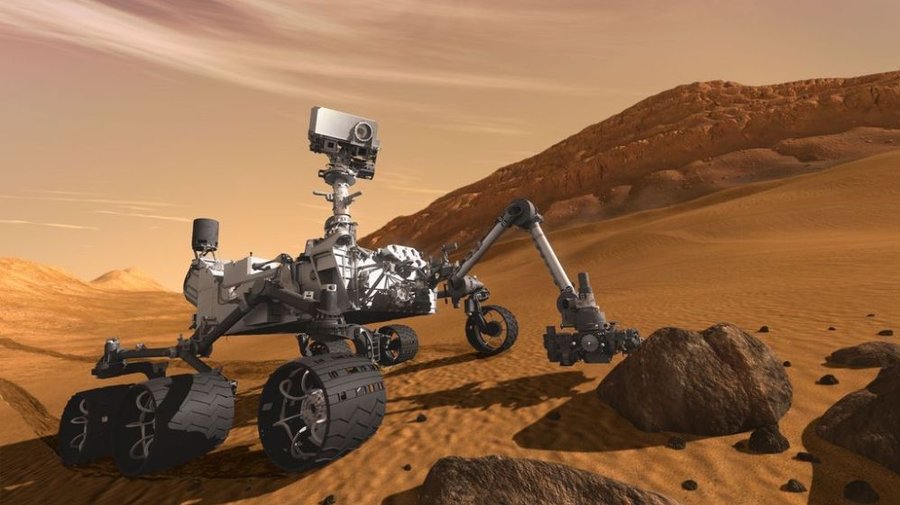Is our regulations in the way of the discovery of extraterrestrial life on Mars?
Researchers in the journal Astrobiology are calling for this. Their plea has received the telling title 'Searching for Life on Mars before it is too late' and states that it is high time to set aside the rules that now deny us access to so-called 'Special Regions' on Mars.
What are 'special regions'?
'Special regions' on Mars are areas where possible life forms of earth - think of microbes - can probably save themselves. In such regions, moderately cleaned marsrovers (see box) may not come at this time. Because you never know: for the same money, a microbe will join in on such a robber and we will later (undeservedly) see this earthly microbe and his descendants for extraterrestrial life. Such barkings must of course be prevented.
Cleaning Policy
Mars robots are obviously sterilized before they enter space. This is to prevent them from bringing terrestrial life forms to Mars. But even thoroughly cleaned robbers like Curiosity and the rising Mars2020 are not allowed to land in the Special Regions. They are not clean enough according to the current rules.
Extraterrestrial life
At the same time, strict regulations regarding these 'Special Regions' may well stand in the way of the discovery of real extraterrestrial life, according to the researchers. Because precisely in these areas would you expect any extraterrestrial life? And that is why - according to the researchers - we have to put this legislation aside and also 'less clean' robbers - such as Curiosity or ExoMars give access to the 'special regions'. Because when it comes to the discovery of extraterrestrial life on Mars, time is running out. There are serious plans to send people to Mars in the coming decades. And we have to make sure that we have discovered any 'native Martians' for that time. Because once people set foot on Mars, planetary protection is actually unthinkable. Because people can not be sterilized.
Race against the clock
"What we emphasize here is that the timing is a problem," the researchers write. "If people were not going to Mars in the next 50 to 70 years, we would agree with conservative approaches in the search for Martian life, but manned missions are already planned and budgeted and will take place within 20 years. It is very likely that our children or grandchildren see footprints of astronauts in the red sand of Mars and at that time it will be too late to clearly identify the nature of real native Martians. That would be a huge loss for science, because the main purpose of exploring Mars should be to find and find life on Mars (...)."
Not everyone agrees with the researchers. In another paper - also to be found in Astrobiology - researchers state that it is not certain that the special regions are the best places to look for Martian life. They also doubt whether the presence of people would lead directly to 'contamination' of the special regions. All in all, these researchers therefore see no need to send "dirty" marchrovers to the special regions.
References
Link #1
Link #2
Link #3
Thanks for your time on my post.



Interesting information in the post. We must be careful not to contaminate other planets with life on Earth, who knows what will happen.
Good job, Keep at it, see you around ;)
Thanks for your advice sir... I will keep that in my mind but I already provided the sources of images. Any ways thanks for liking my post sir.